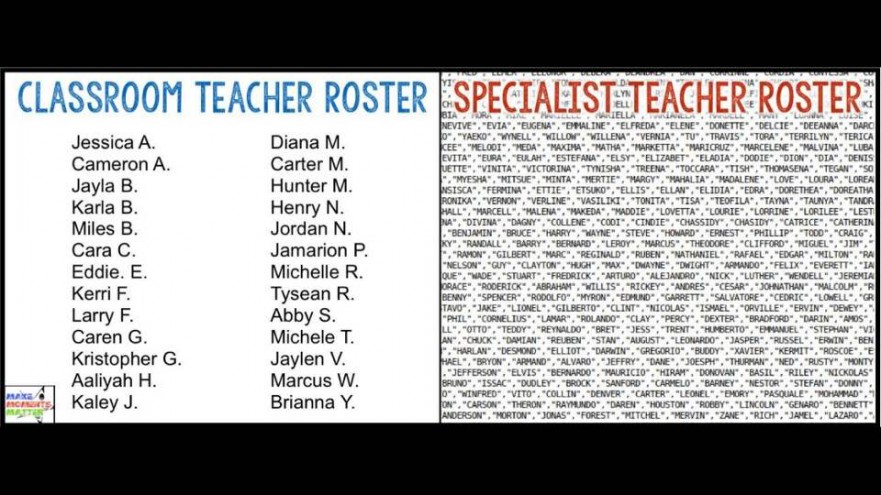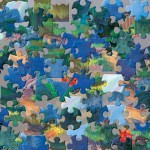I dread the comment, even though I know it is meant as encouragement. It just rubs me the wrong way. “You’re so lucky you DON’T have to sit through data meetings” or “Wow! I bet you have so much fun!” Both of those statements have a ring of truth to them. I also do not have to manage frustrating students all day every day, I’m not accountable to a pacing guide, and my test scores are not published in the local newspaper.
I teach elementary general music. I set my yearly calendar. I teach content that I choose, in a way that I choose, at a pace that I choose. I have that wonderful gift many teachers wish for: autonomy. I cherish it. Autonomy to be a professional and make targeted decisions about what my students need to learn, how to best reach them, and when they are ready to advance to the next level. There are some enviable advantages to teaching in an elementary special area.
I want to talk about the area that I struggle with that bothers me deeply: relationships. I have 35 minutes of instructional time once per week with every class in the school. That’s a lot of names to remember, personalities to absorb, IEP’s, ILLP’s, FBA’s and 504’s to read, study, and implement.
I recently read a blog written by Beth Maloney about the importance of building relationships with students. Beth states, “not understanding the inner workings of our students is a barrier to learning.” I agree with her 100%! It’s a barrier that requires an investment of time and energy to overcome.
I don’t have the same tools as a core area teacher to make that investment, so I have had to get creative with how I invest in those students to understand who they are and what they need.
At the Teacher Leadership Institute this summer the keynote speaker, Dominique Smith, spoke about the importance of knowing names and using them. I sat there listening to him speak, knowing that he was right, and I felt awful! Learning names is a HUGE obstacle for me. I struggle with it daily. I want to cry sometimes when a kindergartener lights up for joy because I FINALLY remember his/her name. I am very intentional with this practice. Part of my opening routine with grades k and 1 is a name game/song. Every class, all year long. It will always have a music skill tied to it, but the main focus is for me to learn and remember their names.
Here are some practices that have helped me with developing relationships:
- Starting in 2nd-grade students have a “group” for music that changes each quarter. This allows me to facilitate cooperative learning, and interact with students on a more personal level. I can evaluate who works well together, who has leadership qualities, who needs more support.
- I LOVE recess and cafeteria duty! I know it sounds crazy, most teachers are trying to find a way to avoid those assignments. This time gives me the opportunity to interact with students on a daily basis (something I miss out on in my teaching schedule). I experience my students on a whole different level. I have the opportunity to guide conversations around conflict resolution and respect for others. I can talk with students individually and find out what is happening in their lives. I learn about their relationship with their homeroom teacher, parents, grandparents, neighbors, etc. This is the venue where I learn WHO my students are as humans.
- I lead after-school groups. I have a choir and music club for grades 3-5. The choir focuses on performing both at school and in the community. I use community involvement to help them learn about service and civic responsibility. When we visit an assisted living facility, part of the visit is for students to interact with the residents then write about it when we get back to school.
- For our Veteran’s Day salute, students bring in photos of people in their family who are veterans. I have the privilege of organizing the slideshow. There’s a story behind every photo, and I get to hear them.
- I am almost ALWAYS in the middle of a group of students when someone comes into my classroom. It’s a bit comical to see them looking around trying to find the adult in the room. I am modeling, listening, connecting, and guiding learning every single minute there is a student in my room.
While you may look at the special area teachers in an elementary school and envy their job, remember it’s not easier, it’s simply different.










Comments 6
Thank you for this article! Although I am not a Specials Teacher, I am a Montessori Teacher and I frequently encounter fellow teachers that have misconceptions about what happens in my class. I also say “it’s not easier, just different.” Thank you for opening the doors of a music classroom and letting us see how true instruction occurs in their, and the extra efforts you have to take to build meaningful relationships with our children.
Thank you Yolanda. We must all tell our stories for others to see into the world we live in each day.
I love the image you used for this piece. It’s the perfect illustration of the blog’s topic. Specialists have such a unique skill set to build relationships with so many kids with so little time to get to know each one. I thought it was so cool that you mentioned recess duty as being a highlight for you to get to know students in a more casual, alternate atmosphere. There are many great ideas here for others to implement. Thanks for sharing this story/perspective!
thank you so much for the comment. I have often wondered why other teachers don’t understand the specialist’s position, and it occurred to me that it’s because we don’t tell our stories. I hope others gain insight from this post.
Thank you Susan for providing a perspective that I don’t understand fully. I love your passion for building student relationships but I also can’t imagine learning not only the names but needs of your entire school campus. That is such a weight and I so appreciate you sharing your story and perspective, we need to hear about the voices of everyone on our campus.
Thank you Amy. I hope to be a voice among many in this great ocean of teachers.